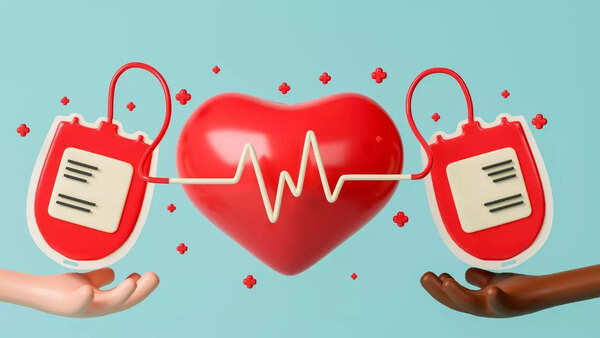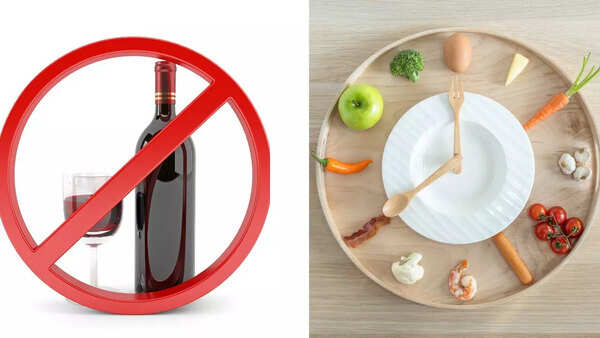Donating blood is a selfless act that can save lives. However, it's essential to prepare your body properly to minimize potential side effects like fatigue or anemia. Fueling your body with the right foods and drinks before and after donating blood is crucial for a smooth and safe experience.
Staying hydrated and consuming iron-rich foods can significantly reduce the likelihood of adverse effects. By taking these simple steps, donors can ensure their well-being while continuing to contribute to the critical need for blood donations. Proper preparation and aftercare can make a significant difference in a successful donation process.
According to health experts, incorporating specific food items into your diet before donating blood can be highly beneficial:
1) Iron:
Iron is essential for hemoglobin production, which carries oxygen throughout the body. Maintaining healthy iron stores is vital, and this can be achieved through a balanced diet. It's important to note the two types of dietary iron:

To effectively boost iron stores, prioritize consuming heme iron-rich foods:
Consuming these foods can significantly reduce the risk of iron deficiency anemia post-donation.
2) Vitamin C:
Vitamin C plays a crucial role in enhancing the absorption of nonheme iron (plant-based iron). To maximize iron absorption, include Vitamin C-rich foods in your pre-donation diet:

Combining these vitamin C-rich foods with nonheme iron sources can significantly increase iron absorption efficiency.
3) Water:

Maintaining optimal hydration is crucial. Drink extra water to ensure you are fully hydrated before donating blood. Dehydration can lead to dizziness and low blood pressure. Health organizations recommend drinking an additional 2 cups (16 ounces) of water or other non-alcoholic beverages, in addition to the daily recommended intake of 9-13 cups (72-104 ounces) of fluid.
To ensure the donation process goes smoothly, it's important to avoid certain substances:
Alcohol: Refrain from drinking alcohol 24 hours before donation, as it can lead to dehydration. If alcohol is consumed, increase water intake to compensate.
Fatty foods: Avoid foods high in fat (e.g., fries, ice cream) as they can negatively affect blood test results.
Iron blockers: Limit foods that reduce iron absorption:
Aspirin: If you are donating platelets, avoid aspirin for 48 hours before donation.
Avoiding these substances will help ensure your blood donation is usable and safe for transfusion.



Newer articles
Older articles
 Moto G54 Gets Significant Price Cut in India, Making Budget Smartphone Even More Appealing
Moto G54 Gets Significant Price Cut in India, Making Budget Smartphone Even More Appealing
 Africa's Rift Valley: Mantle Upwelling Drives Continent's Split and Birth of New Ocean
Africa's Rift Valley: Mantle Upwelling Drives Continent's Split and Birth of New Ocean
 X Cracks Down: Over Half a Million Indian Accounts Suspended for Policy Breaches
X Cracks Down: Over Half a Million Indian Accounts Suspended for Policy Breaches
 Vijay Sethupathi Apologizes Amid Controversy Over Son Surya's Debut Film 'Phoenix'
Vijay Sethupathi Apologizes Amid Controversy Over Son Surya's Debut Film 'Phoenix'
 Jadeja's Accuracy Questioned: Ex-India Pacer Slams Spin Strategy in England Test Loss
Jadeja's Accuracy Questioned: Ex-India Pacer Slams Spin Strategy in England Test Loss
 IRCTC's AI Chatbot Revolutionizes Train Ticket Booking, Refunds, and Information Access
IRCTC's AI Chatbot Revolutionizes Train Ticket Booking, Refunds, and Information Access
 Ashada Gupt Navratri 2025: Unveiling Dates, Sacred Rituals & Hidden Significance of the Monsoon Festival
Ashada Gupt Navratri 2025: Unveiling Dates, Sacred Rituals & Hidden Significance of the Monsoon Festival
 Google Maps Enhances Directional Accuracy with Fused Orientation Provider Update
Google Maps Enhances Directional Accuracy with Fused Orientation Provider Update
 xAI to Open Source Grok, Democratizing Access to Musk's AI Chatbot
xAI to Open Source Grok, Democratizing Access to Musk's AI Chatbot
 Android Users Urged to Patch Now: Critical Security Flaws Expose Devices to Attacks
Android Users Urged to Patch Now: Critical Security Flaws Expose Devices to Attacks